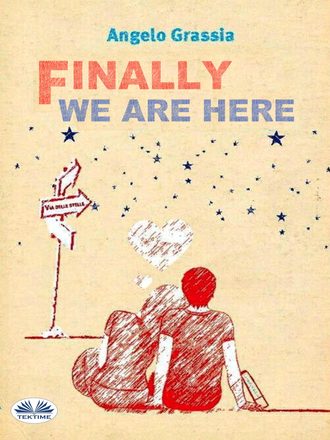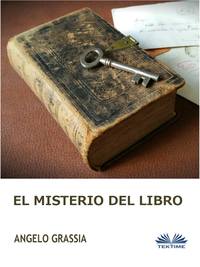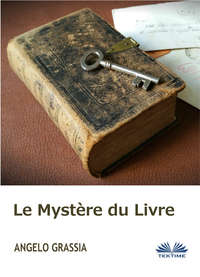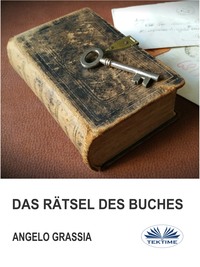
Полная версия
Finally We Are Here
The dress was soon packed and the mother wanted to wear it for the first time to go to church to listen to the Mass. Perhaps she meant to thank God for the treasure of the son he had given her, the only living male, after four daughters brought into the world, all married but forgotten, in large part, perhaps because far away, from their branch duties.
My father and her mother lived in Naples near Piazza Amedeo, in a building located at the intersection of two streets: Via Vittoria Colonna and Via Giovanni Bausan, in a modest but well-kept house. The origins, sometimes, are not contradicted; Donna Anna was born as a lady and she remained so, even if poverty and loneliness had been for a long time her only and faithful companions.
Her scion, her one and only big treasure (as she used to say) had assured her a life not well-off but serene. Sometimes the serenity and the health are worth more than money!
Luigi, however, for work reasons, was forced to move continuously and the poor mother was also used to this. She said she felt equally calm, because she knew well the feelings that animated his son and, consequently, of the actions that he performed.
At that time, to make a career in hotels, the so-called "Certificates" were needed: certificates issued by the owners or managers of the companies where he had worked to explicitly declare the tasks performed and the skills demonstrated during the entire stay in the hotel.
The big hotels of that time welcomed a high class clientele and, as a consequence, they required in the personnel they assumed adequate gifts and unexceptionable moral requisites. The career, therefore, was a function of these "Certificates" and furthermore, in order to advance well or to do so with a certain solicitude, it was particularly necessary to have a perfect knowledge of foreign languages, particularly of English and German.
All the best Seasonal Posts were almost all, sooner or later, the prerogatives of my father, who, having begun to work in that branch at an early age, knew his job well and in his long stay in England he had learned that language very well. .
They told me in one of his stops in Naples, a little more prolonged than usual, happened something: one day my grandmother, in tidying her son's room, found under the pillow a letter addressed to him. Which mother would not care to know who was the person who contacted with her son? And so giving a fleeting glance at the first words and the signature, she became aware of his secret; something that a mother's heart had perhaps already foretold: Luigi and Virginia loved each other!
When his son returned in the evening he noticed in his mother's eyes a greater tenderness, because her eyes glistened with joy and maternal love. She went to him whispering in his ear, jokingly smiling:
"Little scoundrel … little scoundrel ..., you make love with Virginia!".
My father had so much respect for his mother and he apologized confirming joyfully his feeling. So his mother told him these words:
"I am very happy with your choice. May God one day allow and bless your union ".
8
Donna Anna lived, now, a peaceful life. She was happy and pleasant with her state, but unfortunately, she had on her face the traces of her past sufferings and in the physical the damage suffered in the most anguished period of her existence. A sad day she fell ill and there were no cures that could save her. Before taking her last breath, she called his "only treasure" and she thanked him for all he had done for her; she praised him for his affectionate feelings and she blessed him. She also had the strength to say:
"Bride Virginia. She is the woman of your life. You will certainly be happy with her! "
So we arrived in the year 1907 and during that winter season, my father was "hired" by the Engadine Kulm Hotel in St. Moritz. On his return, in the spring of 1908, his Virginia, for him also second mother, awaited for him with anxiety, with love and affection. On 10 December 1908 they happily married in the Church of S. Rocco on the Riviera di Chiaia, following the permission from the Parish of the Ascension in Chiaia, to which they belonged. My father, always modest, and my mother, even more modest than him, went to live in a small house on a high floor of a building located in Parco Margherita n. 23, near Piazza Amedeo. That was their first love nest; in that place they conceived their firstborn, that is me, I came to the world the morning of 4 October 1909, the day of the festivity of Saint Francis, the poor man from Assisi.
With my birth, my father felt his responsibilities increase. He spoke English very well (he had been in England for more than 10 years); now it was necessary to improve in the German language. Then he worked to have a place of greater stability: he wanted to stay for at least a couple of years in the same place, not only to be near his young bride, but to help her in my growth.
The place fortunately came and it was also very welcome. My father went to cover the place of 1st Maître at the Hotel Vittoria in Naples, where he remained until September 1910.
Hence still a necessary shift for his career, he went to the city of Rome and, precisely, to the Gran Hotel Royale, located in Via XX Settembre.
My mother and me, this time, followed him to the new residence, settling in a small, furnished apartment, near a certain Ragazzoni family, in the nearby Via Colline, behind the hotel.
In Rome, my father found himself very well. The company of my mother and mine gave him greater vigour and a lot of serenity and enthusiasm in the fulfilment of his duties.
But the career required more sacrifices, still other journeys. In June of 1912 they offered my father the summer season at the Palace Hotel in Livorno and he, always for that famous issue of the "Certificates", gladly accepted. In fact, at the end of the same, he saw his dream of returning to Naples crowned, which pleased my mother too, since Naples was her native city and the usual residence of her family. We see him as 1st Maître at the Gran Hotel Eden in Naples from 23 April 1913 to 19 February 1914 and, immediately afterwards, always in the city, at the Savoy Hotel, precisely on 20 February 1914.
In Naples, favoured by an old friend, my father managed to have a small but comfortable house in a building on the Riviera of Chiaia 211, owned by the Duca Maresca of Serracapriola. Then, the Riviera of Chiaia was the most beautiful and elegant artery of Naples, both for the grandeur of its buildings, its thick walls, (so with warm rooms in winter and cool in summer: in those days there were no heaters!) and for natural exposure to the South. In front of the Riviera there is the Villa Comunale, through which you find yourself in the much vaunted Via Caracciolo, flanked for a long stretch from that "always blue" sea, as one of the most famous Neapolitan songs says.
In that road there is no stranger, or tourist who does not stop to look at the beauty of the landscape: the characteristic Vesuvius, the old and artistic Castel of the Ovo and on the right, at the top, the much-vaunted Hill of Posillipo, destination of all the lovers and inspirer of the great Neapolitan poets.
The Via Caracciolo, in the past, was considered the "living room of Naples", the place of the elegant walk, especially on Sunday morning, after the ritual listening to Mass in the nearby Church of Santa Caterina da Siena. In this way, the most high-ranking ladies of the city agreed to show off their lavish toilets, as well as all the youths or for the pre-arranged meetings or even for the hoped for first encounters.
I still remember when this street, in the evening and at night, was illuminated by the famous "gas lamp posts". The walk at that time was even more suggestive: how many words and phrases of love were uttered in it; how many oaths and promises of love, how many tender and passionate kisses have been exchanged! (it is worth remembering the verses of this old and beautiful song: "Tutto passa, fernesce e se scored....’o destino d’ ‘o munno è accussì ...").
This road is also famous abroad for the fame of its large hotels, as well as its restaurants: those who do not remember the famous "Zi 'Teresa", the "Bersagliera" the "Transatlantico" open day and night and the famous hotels scattered along the entire coast: the "Excelsior" the "Santa Lucia" the "Vesuvio" the "Royal" and the "Continental", all sources of happiness for the countless tourists, coming from all parts of the world and wealth for part of the population, used to living mainly with tourism.
9
Meanwhile, our country, neutral after the siege of Sarajevo, began to intervene in the conflict: the symptoms were everywhere evident. The war was soon declared and my father, belonging to the class of 1885, was mobilized in January 1916. Naples was not a very populated city: it could be considered, at that time, a great country: everyone knew each other. Did you want to find someone to talk to? It was enough to go to Piazza S. Ferdinando to see, after a short time, the person you wished to meet, or else in a position to immediately give you news of what you were looking for.
My father had made a name for himself in the hotel environment, both for the expertise acquired by travelling half the world, and because he was known as an affable and kind person.
The president of the Italian Red Cross, Marquis La Via, knew very well my father, as a close friend of the owner of the Hotel Santa Lucia. Having heard of my father's call to arms, he sent someone to call him and he asked if he would be willing to work with Major Pavone in the opening of a Territorial Hospital for War Injuries, planted in Naples, in the immediate vicinity of the Mergellina Metro, at the beginning of Corso Vittorio Emanuele. My father accepted the job very willingly and, after a few hardships and setbacks, the hospital in question, called "Regina Elena", was ready to work. My father wore the gray-green uniform and, after a brief interview, they gave him the rank of health sergeant, with the specific task of providing the provisioning, the canteen and many other tasks only he knew how to disengage thanks to his competence, given the scarcity of the staff assigned to the hospital itself.
Конец ознакомительного фрагмента.
Текст предоставлен ООО «ЛитРес».
Прочитайте эту книгу целиком, купив полную легальную версию на ЛитРес.
Безопасно оплатить книгу можно банковской картой Visa, MasterCard, Maestro, со счета мобильного телефона, с платежного терминала, в салоне МТС или Связной, через PayPal, WebMoney, Яндекс.Деньги, QIWI Кошелек, бонусными картами или другим удобным Вам способом.






